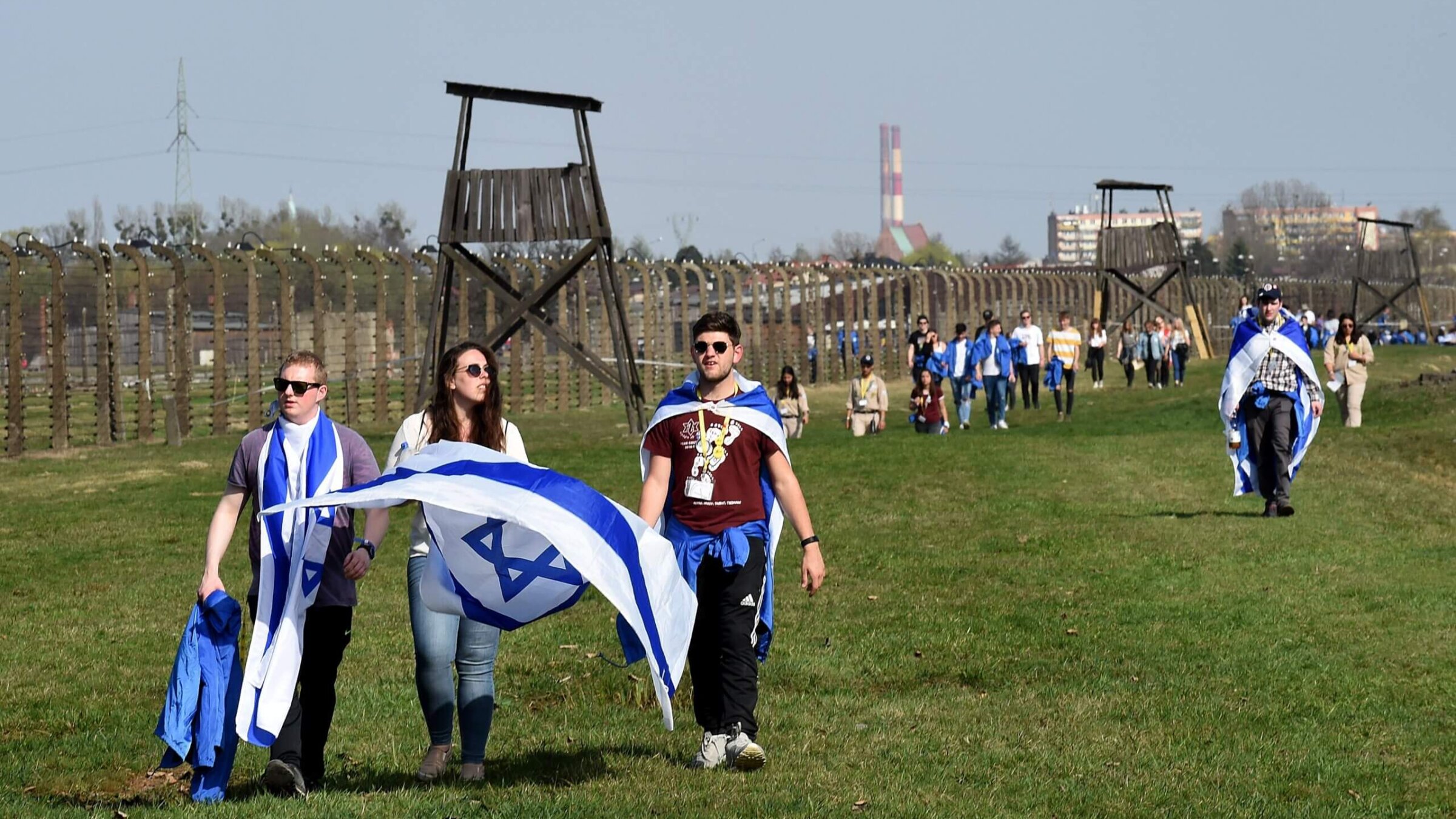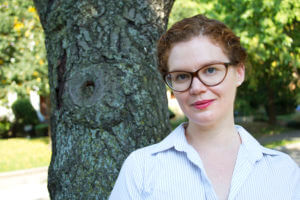Why we are teaching the Holocaust wrong
‘Hate’ as a primary cause of the Holocaust is a neat answer, but it flatters us by avoiding complexity

Youth hold Israeli flags during the “March of the Living”, a yearly Holocaust remembrance march between the former death camps of Auschwitz and Birkenau, on April 12, 2018 in Oswiecim (Auschwitz), Poland. Photo by Janek Skarzynski/AFP via Getty Images
The United States is embroiled in heated discussions about what should — and shouldn’t — be taught in our classrooms. In some cases, the Holocaust has been used as a foil. Twenty-three states have passed laws requiring Holocaust education in public schools, and the topic is viewed as something whose educational value is clear.
Except, I’d argue, it isn’t.
Every year, survey results and editorials remind Americans how little we (and others) know about the Holocaust, and call for more Holocaust education. Especially on Holocaust Remembrance Day, it is worth thinking more critically about how we teach this topic.
Many see obvious value in teaching about the Holocaust with a simple narrative: Hatred leads to exclusion and mass murder.
The text of the Never Again Education Act, passed nearly unanimously in 2020, tells us that the purpose of Holocaust education is to “understand the importance of democratic principles, use and abuse of power, and to raise awareness about the importance of genocide prevention today” and provide “a context in which to learn about the danger of what can happen when hate goes unchallenged.”
As a historian, Jewish studies scholar and professor of Holocaust history in one of the states that “encourages” Holocaust education, I can see that we’re not asking the right educational questions, the most basic being, what specifically do we want students to understand about the Holocaust itself?
In my experience teaching Holocaust history in university classrooms, many students tell me that they have enrolled so that they can “prove” the existence of the Holocaust to the deniers they know, and fortify our society from commiting genocide in the future. Most also believe that there were two main causes of the Holocaust: “hate” and “fear.”
Despite their enthusiasm for the topic, these students enter knowing very little about the Holocaust itself. And despite years of Holocaust education, they haven’t deeply engaged with the causes of WWII and the Nazi rise to power, the role of bystanders and the specific features of the Holocaust.
These students, like policymakers, too often treat the causes of the Holocaust as self-evident, and the “lessons” it teaches as settled. But this leads us to reductive, self-satisfied, and flattening platitudes. Advocates of Holocaust education argue that students just need to know that “the Holocaust happened” or “it was as bad as they say.” But these are not the kinds of questions that historians set out to answer, nor what we debate.
Instead, we examine and debate nuanced questions: Why did local non-Nazi Germans sometimes collaborate with Nazi forces, and sometimes (less often, to be sure) aid their Jewish neighbors? How did local and regional politics influence responses to Nazi occupation? What forms did resistance against the Nazis and local collaborators take, and why did resistance efforts, and types of resistance, vary?
When we treat learning about the Holocaust as fundamentally different from learning about any other challenging historical event or process, we do students a huge disservice. These questions require the same historical tools as students use for other topics, and don’t let anyone off the hook.
If the goal of studying the Holocaust is to understand the complex nature of moral action, the ins and outs of how people who acted “morally” in many realms of life but had no compunctions about either joining the Nazi party or collaborating to kill their neighbors — as recent work by historians and political scientists attests to — then that complicates our ability to reduce the Holocaust to an object lesson in morals like anti-bullying.
Instead, research tells us that in many cases, a desire for professional or material gain, and states’ desires to reclaim lost territories, were the motivating factors behind most collaboration with the regime.
I love the idea of stamping out hate. But almost nothing about studying the Holocaust points to “hate” as an accurate or satisfactory way to describe the Nazi rise to power, the ghettoization of Jewish populations, and the initiation of mass murder, in killing fields and in concentration camps. But “hate” as a primary cause is neat, and it flatters us by avoiding complexity.
Perhaps that’s why we don’t want to teach better historical lessons of the Holocaust. The more complex and rigorous the study, the harder it is to congratulate ourselves. History education should never lead to smug answers; rather, it should open up more and more questions.
It will surely be difficult to move Holocaust education away from the realm of platitudes. But how can we say “never again” when we claim to have all the answers from the outset or see the Holocaust as an instrument for teaching a general morality, rather than a serious object of inquiry?
We cannot truly commemorate victims and survivors, and cannot do justice to history, if we do not rethink what we mean by “Holocaust education.”
To contact the author, email [email protected].

















